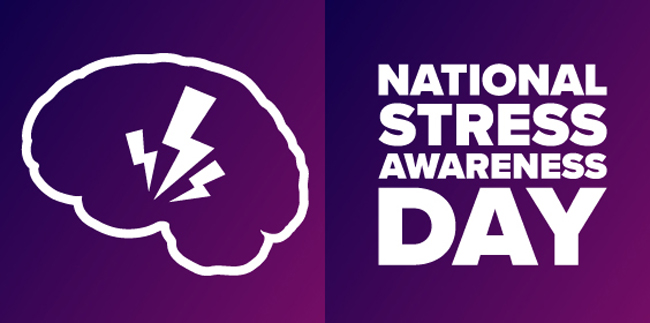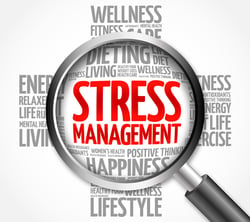Most adults are busy in their everyday lives! Add to that financial stress and it's enough to set some people over the edge. The holidays can make this problem even worse.

It's important to find ways to manage stress in your everyday life. In this article, we'll talk about the effects of financial stress upon your health, and discuss practical things you can do to manage your financial stress.
How Financial Stress Impacts Health
There are many conditions that are worsened by financial stress. Every person handles financial stress differently. Below are some of the most common problems that people experience due to financial stress.

- Insomnia. Nothing keeps you awake quite like wondering how you'll pay the bills. Insomnia is a common problem that people with financial difficulty experience.
- Depression. Studies show that people who struggle with debt are far more likely to experience depression than people without debt.
- Social withdrawal. Financial trouble can prevent people from participating in social gatherings that require money. This leads to feelings of social isolation.
- Weight gain or weight loss. Some people with financial stress find eating difficult, while others overeat to manage their feelings.
- Difficulty in personal relationships. Couples with financial stress often experience relationship troubles.
- Unhealthy coping mechanisms. People with financial troubles sometimes drink too much, experience drug addiction, and even engage in self-harm.
How to Control Financial Stress and Live an Enjoyable Life
Financial stress can have damaging emotional and psychological effects. However, people who learn to manage their stress can live a fulfilling and enjoyable life.
Managing stress can even make it easier to solve financial problems, as this makes it easier to think clearly and with more focus. There are many things you can do to control your financial stress.
Get Help From a Professional
Professional financial counselors help people with debt find solutions that can improve quality of life. If you live with debt, get help from a financial counselor who can introduce you to a debt relief counselor that can help.

Talk to Someone You Trust
Financial stress can be isolating, leaving people feeling as if they are alone with their problems. Find someone who you can talk to about your concerns. They may not be able to fix your problems, but they should be able to listen to your concerns without judgement. Use this person as a sounding board for your ideas.
Make Time For Low-Cost Family Fun
Don't let your financial troubles take away from time with your family. Find low-cost things to do with those you love. Play board games, go to a park, take a walk or go for a bike ride. These low-cost activities will help reduce your stress, strengthen your relationships with your family, and fill your time with low-cost activities.
Budget and Plan
You'll feel better about your finances when you have a plan for living within your means. Make a weekly budget that allows you to live without overspending. Stick to your budget. Have a plan in place for emergencies and for special occasions that might require extra spending, like holidays.

Avoid Spending Triggers
Most people have spending triggers. If going to the mall or spending time with a certain friend makes you more likely to spend money, find ways to avoid these triggers and stick to your budget. You'll feel less stress if you're able to manage triggers and live according to your budget.
Forgive Yourself For Financial Mistakes
Forgive yourself for any financial mistakes that you've made in the past. Practice mindful breathing and forgiveness techniques to ease the mental and emotional burden you feel. If you're not familiar with mindful breathing, engage in guided forgiveness meditation.
Stress Awareness Day is coming on November 3rd! Staying aware of your stress and also practicing self-care during this time can help make your holidays more enjoyable.






